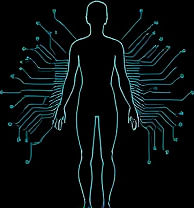Adaptogen Dosage Essentials for Health Optimization
 by Shanie Goodwin
by Shanie Goodwin
Discover how adaptogens can enhance your well-being through precise dosage strategies. This guide covers key herbs, their benefits, and safe usage for biohackers seeking better stress management and cognitive performance, all while integrating modern tech tools.

Adaptogens have gained attention among those focused on personal enhancement. These natural compounds help the body manage stress and promote balance. For instance, adaptogens like ashwagandha support overall vitality.
In the context of biohacking, adaptogens play a key role in health optimization. They assist in maintaining energy levels and mental clarity. Users often report improved focus after consistent use.
One popular adaptogen is rhodiola. This herb aids in reducing fatigue. A typical starting dose for rhodiola is 200-400 mg per day, taken in the morning. Always begin with the lower end to assess tolerance.
Another essential adaptogen is ashwagandha. It helps with cortisol regulation. For ashwagandha, doses range from 300-500 mg daily, ideally with meals. This can lead to better sleep and recovery.
When considering nootropics, adaptogens often complement these cognitive enhancers. For example, combining adaptogens with other supplements might boost brain function. A safe approach involves starting small and monitoring effects.
Benefits of Adaptogens
Adaptogens offer various advantages for wellness enthusiasts. They can improve resilience to daily pressures. Regular intake may enhance mood and physical endurance.
In terms of health optimization, these herbs support immune function. Studies suggest they help in managing inflammation. Biohacking enthusiasts value this for long-term well-being.
Dosage Guidelines
Proper dosing is crucial for effectiveness. For holy basil, also known as tulsi, a common dose is 300-600 mg daily. This can be split into two doses for steady benefits.
Eleuthero is another option for energy support. Doses of 200-300 mg per day are typical. Track your response over weeks to fine-tune.
Integrating with Wearable Technology
Wearable devices provide insights into how adaptogens affect your body. For example, a fitness tracker might show changes in heart rate variability after starting an adaptogen routine. This data helps in adjusting dosage for optimal results.
Many users pair adaptogens with apps that monitor sleep patterns. This combination allows for personalized enhancement strategies. It's a practical way to see real-time improvements.
Safety Considerations
While adaptogens are generally safe, individual responses vary. Consult a professional before beginning any new regimen. Start with lower doses to avoid potential side effects like digestive discomfort.
For long-term use, cycle adaptogens to prevent tolerance buildup. For instance, use rhodiola for four weeks, then take a break. This approach supports sustained health benefits.
In the area of personal enhancement, adaptogens shine as accessible tools. They align with goals of self-improvement through natural means. Many find that consistent use leads to noticeable gains in daily performance.
To maximize results, maintain a balanced diet and exercise routine alongside adaptogens. This holistic method fosters comprehensive well-being. Over time, you might notice enhanced cognitive clarity and physical stamina.
Finally, exploring adaptogens can be a rewarding part of your biohacking journey. With careful attention to dosage, these herbs offer a path to greater resilience and vitality.
- Key adaptogens: Ashwagandha, Rhodiola, Holy Basil
- Typical doses: 200-600 mg daily
- Monitoring tools: Wearables for tracking progress
